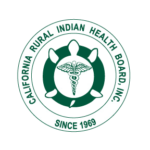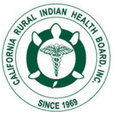In the past fifty years CRIHB has held hundreds of quarterly meetings where Indian health leadership and staff have come together to discuss local, State and National issues, to network and learn from each other and to agree on collaborative actions to improve and protect health services. CRIHB has never failed to make a quorum in all that time.
CRIHB is a founding member of the National Indian Health Board and represents Tribes and Tribal Health Programs in California to the NIHB today. We actively supported their move to Washington DC resulting in an expansion in their advocacy role with both Indian Health Service (IHS) and Congress.
CRIHB worked with the NIHB as an active part of a national coalition to add language to the Medicare Modernization Act that will limit the ability of hospitals to charge more than Medicare rates to IHS and Tribal Health Programs.
CRIHB acquired funding from The California Endowment to establish the ACTION FOR INDIAN HEALTH CAMPAIGN. The first formal arrangement for joint political action with Riverside San Bernardino County Indian health and Indian Health Council since those programs left the organization in 1977.
The ACTION FOR INDIAN HEALTH CAMPAIGN was successful in protecting American Indians in California from premiums and co payments for Medi-Cal coverage that were imposed on everyone else under Governor Schwarzenegger’s Medi Cal Redesign Plan.
CRIHB board members incorporated the Turtle Health Plan in 2000 as primary strategy to maximize Medi-Cal funding for Tribal and Urban health Programs in California. Over $2 million in grant funds were invested in developmental actives in support of this strategy.
The CRIHB Area Office Functions Contract begun in 1995 established a new model of Indian Self-Determination Act contracting in which resources are pooled to acquire economies of scale but placed under tribal control to increase responsiveness and quality.
CRIHB leadership, legislative success and research products lead to the development of a single national standard for accurately measuring IHS funding short falls initially known as the Level of Need Funded methodology and now called the FDI index.
CRIHB working nationally with other Tribal Health Contractors brought about the IHS/HCFA Memorandum of Agreement, which extended the IHS encounter rate process for billing Medi Cal to California, which continues today. Back billing under this method created a onetime $8.5 million windfall for Tribal Health programs in California.
CRIHB maintains a close working relationship with the California Department of Health Services and the Health and Welfare Agency to advance Indian health interests at the state level. These relationships have facilitated oversight and problem solving with the Indian Health Program, the Healthy Families Program.


